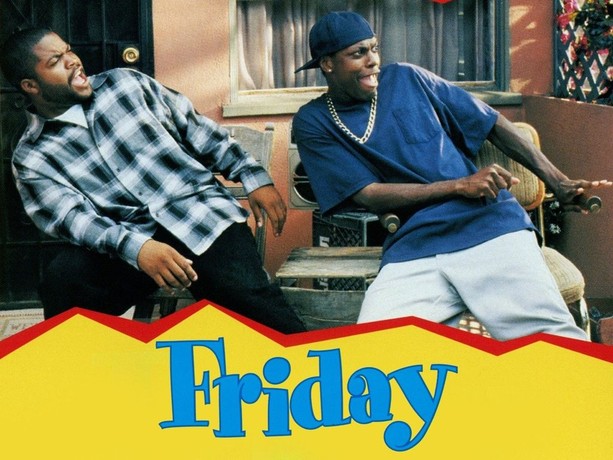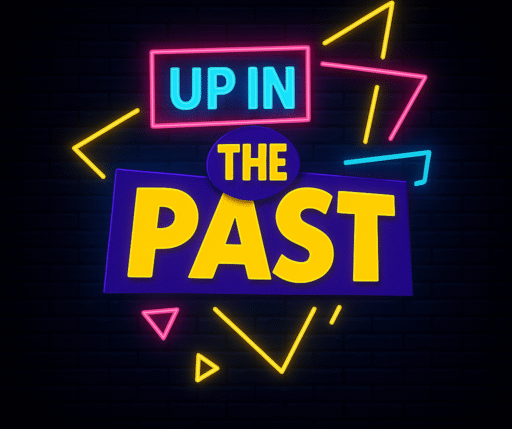
“Friday”: A Cult Classic That Redefined Comedy and Community
Released in 1995, Friday, directed by F. Gary Gray and written by Ice Cube and DJ Pooh, became an instant classic and a cultural milestone for a generation. While initially dismissed by some critics as just another stoner comedy, Friday has since proven to be much more—an authentic portrayal of life in South Central Los Angeles, a sharply written social commentary, and a comedic blueprint for urban storytelling. With its unforgettable characters, iconic quotes, and laid-back yet impactful style, Friday remains a beloved film that resonates with audiences to this day.
At its core, Friday is a day-in-the-life comedy that unfolds over the course of a single day—Friday—in a working-class Black neighborhood in L.A. The story follows Craig Jones (played by Ice Cube), an unemployed young man who wakes up to discover he’s been fired from his job on his day off, and his best friend Smokey (played by Chris Tucker), a fast-talking, weed-smoking hustler with a knack for getting into trouble. The plot kicks into gear when Smokey reveals that he owes a local drug dealer, Big Worm, $200 by 10 p.m., or they both will face deadly consequences. What ensues is a hilarious and sometimes tense scramble to come up with the money before the sun goes down.
What makes Friday stand out from other comedies of its time is its authenticity. Ice Cube, who also co-wrote the film, drew from his own experiences growing up in South Central L.A. The film offers a window into a world rarely depicted in mainstream cinema without sensationalism or stereotype. Unlike many films that portrayed the inner city as a place of constant violence and despair, Friday focused on the everyday life, humor, and humanity of its characters. The people on Craig’s block aren’t caricatures—they’re friends, neighbors, family members, and familiar faces. From the chain-smoking Mrs. Parker to the neighborhood bully Deebo, the film introduced characters that felt real and relatable.
Chris Tucker’s performance as Smokey is one of the most memorable aspects of the film. His energy, timing, and improvisational style brought a unique spark to the role that helped launch his career into stardom. Smokey isn’t just comic relief; he’s a central figure whose wild antics and street smarts keep the story moving. His chemistry with Ice Cube creates a dynamic duo that drives the heart of the movie. Together, they navigate everything from nosey neighbors and drive-by threats to romantic interests and family drama—all with humor and heart.

Another element that sets Friday apart is its message about conflict resolution. In a climactic moment, Craig chooses to fight Deebo with his fists rather than a gun, symbolizing a break from the cycle of violence often associated with life in the inner city. This moment, while subtle, sends a powerful message about manhood, responsibility, and choosing a better path. It’s a surprisingly poignant scene in a film filled with laughs, reinforcing the idea that Friday has more depth than meets the eye.
The humor in Friday is timeless. The dialogue is endlessly quotable, with lines like “Bye, Felisha,” “You got knocked the **** out!,” and “It’s Friday, you ain’t got no job, and you ain’t got s*** to do!” becoming part of pop culture vernacular. But beyond the catchphrases, the film’s humor works because it’s grounded in truth. It finds comedy in real-life situations—dodging bill collectors, dealing with eccentric neighbors, navigating family relationships—and makes those situations feel both specific and universal.
Musically, the film also shines. The soundtrack, featuring artists like Ice Cube, Dr. Dre, Bootsy Collins, and Rick James, perfectly captures the laid-back West Coast vibe of the 1990s. The music not only enhances the mood but also helps define the world of Friday. From smooth funk grooves to gritty hip-hop beats, the soundtrack is a character in itself, adding texture and rhythm to the film’s storytelling.
Over the years, Friday has grown into a franchise, spawning two sequels: Next Friday (2000) and Friday After Next (2002). While these films expanded the universe and introduced new characters, many fans agree that the original Friday remains the most beloved and impactful. Its simplicity, humor, and heart continue to attract new audiences, making it a rite of passage for many who grew up in the ‘90s and early 2000s.
In retrospect, Friday was a game-changer. It proved that Black filmmakers could tell their own stories on their own terms, blending comedy with social realism in a way that resonated widely. It opened doors for other films to follow and helped normalize everyday Black experiences in mainstream cinema.
Thirty years later, Friday isn’t just a funny movie—it’s a cultural touchstone. It’s the kind of film people revisit not only for the laughs, but for the familiarity, the nostalgia, and the truth it carries. Whether you’re watching it for the first time or the fiftieth, Friday still feels fresh, still feels real, and still reminds us that sometimes, the most memorable stories happen on the most ordinary days.

Leave a Reply